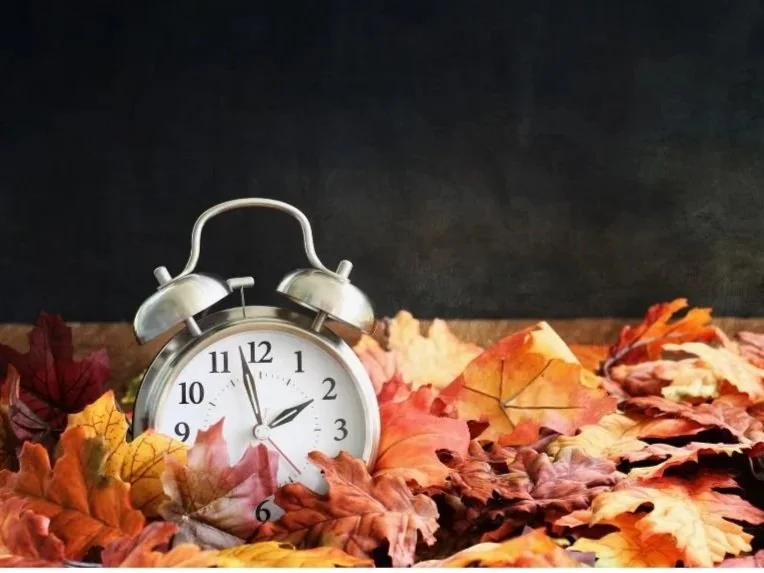How to Thrive This Winter: Not Just Survive It
The time change is coming, the days are getting shorter, and suddenly it’s dark by 5 p.m. For many women, this season brings more than just chilly weather and cozy sweaters. It can also bring a noticeable dip in mood, energy, and motivation.
If you’ve been feeling more tired, less inspired, or just off as fall turns to winter, you’re not alone. What you might be feeling is something called Seasonal Affective Disorder (SAD) — a type of depression that’s triggered by changes in light, temperature, and our daily routines.
The good news? You can absolutely fight back and even learn to enjoy the colder months. Let’s talk about what’s really going on in your body and what you can do to feel more like yourself again.
What’s Actually Happening in Your Body
Seasonal depression isn’t “just the winter blues.” It’s a biological response to less sunlight and shorter days. Here’s what happens behind the scenes:
1. Serotonin levels drop.
Sunlight helps your body produce serotonin, the “feel-good” neurotransmitter that supports mood and focus. Less sunlight = less serotonin, which can lead to sadness, irritability, or low energy.
2. Melatonin increases.
Your body makes more melatonin when it’s dark, which can make you feel groggy, sleepy, and sluggish even during the day.
3. Vitamin D takes a hit.
Sun exposure is your best source of vitamin D, which supports immune function, mood, and energy levels. Less sun often means lower vitamin D, which can contribute to fatigue and low motivation.
So no, it’s not just in your head — your brain chemistry is literally shifting with the seasons.
Science-Backed Ways to Fight Seasonal Depression
You don’t have to just power through the winter months. There are simple, proven things you can do to help your body and mind adjust.
1. Get more light.
Light is medicine for your mood. Try using a light therapy lamp (10,000 lux) for 20–30 minutes each morning. It mimics natural sunlight and helps reset your body’s internal clock. Do it while you drink your coffee or journal.
2. Get outside — even when it’s cloudy.
Natural light still helps regulate your circadian rhythm. Go for a walk during daylight hours, ideally in the morning. Even on overcast days, outdoor light is much stronger than indoor light.
3. Move your body.
Exercise is one of the most powerful natural antidepressants. It increases serotonin and endorphins, boosts energy, and reduces stress. You don’t need to go hard every time — 20 to 30 minutes of walking, yoga, or strength training can make a big difference.
4. Prioritize sleep hygiene.
Because your melatonin production is already changing, keeping a consistent sleep routine is key. Go to bed and wake up at the same times each day (yes even on the weekends), keep your room dark and cool, and try to avoid screens right before bed.
5. Supplement smartly.
Always check with your doctor, but these nutrients can help support mood and energy:
• Vitamin D3
• Omega-3 fatty acids
• Magnesium glycinate (great for sleep and relaxation)
6. Seek professional help if needed.
If your symptoms feel heavy or start affecting your daily life, talk to a therapist or medical provider. SAD is common and very treatable with therapy, light exposure, lifestyle changes, and, in some cases, medication.
How to Find Joy in the Winter Months
The goal isn’t just to survive the winter. It’s to find ways to thrive in it. Here are some simple ways to bring more joy and calm into the darker months.
Romanticize the little things.
Light a candle while you make coffee, use your favorite mug, or play soft music while you get ready. Create moments that make your everyday feel special.
Get outside, even briefly.
Bundle up, grab your favorite scarf, and take a 10-minute walk. That small burst of fresh air and daylight does wonders for your mood. Include the fam as well!
Create a winter joy list.
Write down 5 to 10 things that make you happy this season - reading by the fire, movie marathons, baking, trying new soup recipes, or cozy nights in. When the slump hits, pick one.
Nourish your body with warm, grounding foods.
Soups, stews, roasted veggies, and oatmeal are comforting and nourishing. Balanced, protein-rich meals stabilize blood sugar and support your mood.
Stay connected.
Don’t isolate yourself. Plan coffee dates, workouts, or calls with friends. Social connection is a natural antidepressant.
Move in ways that feel good.
Dance, stretch, lift weights, or take a group class. It doesn’t have to be intense to help your body and brain feel better.
Let yourself rest.
Winter naturally slows us down — and that’s okay. Rest is part of recovery. Give yourself permission to cozy up and recharge guilt-free every once in awhile.
Set small goals.
Having something to focus on helps you feel purposeful. Try a “30 days of movement” challenge, read a new book each month, or learn a new recipe every week. Be on the lookout for another Habyt step bet in the new year!
Practice gratitude.
End your day by writing down three good things, no matter how small. Gratitude literally helps rewire your brain for positivity.
The Bottom Line
Seasonal depression is real, but it doesn’t have to control your winter. By understanding what’s happening in your body and making a few intentional changes, you can stay consistent, protect your mental health, and even enjoy this slower season.
You’re not lazy. You’re not broken. You’re responding to your environment and now you have the tools to respond differently.
If you need help creating a plan that works for you this season, your Habyt coach is here to help. Together, we’ll build habits that make you feel good: body, mind, and mood.
Want to learn more about The Habyt? We offer a FREE discovery call where we can answer all you questions!

